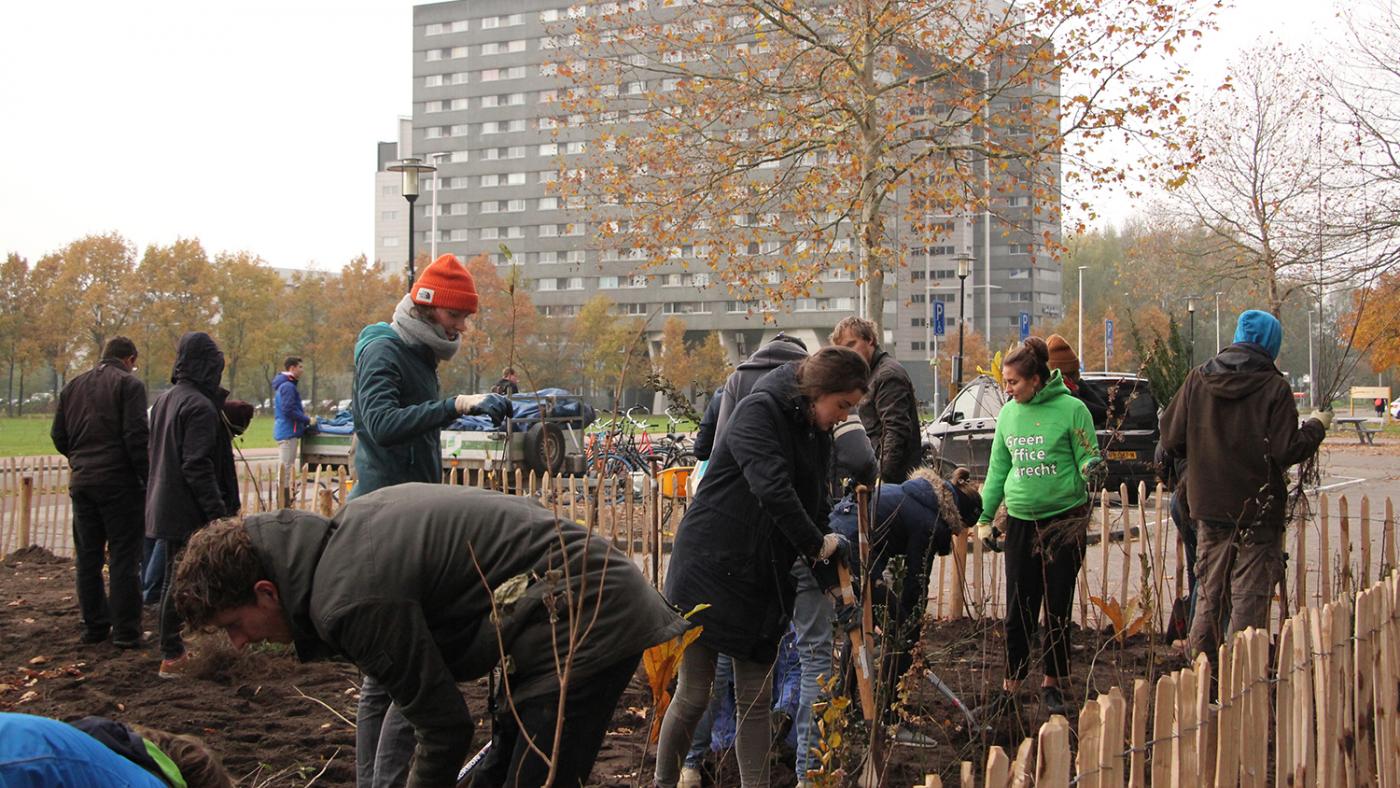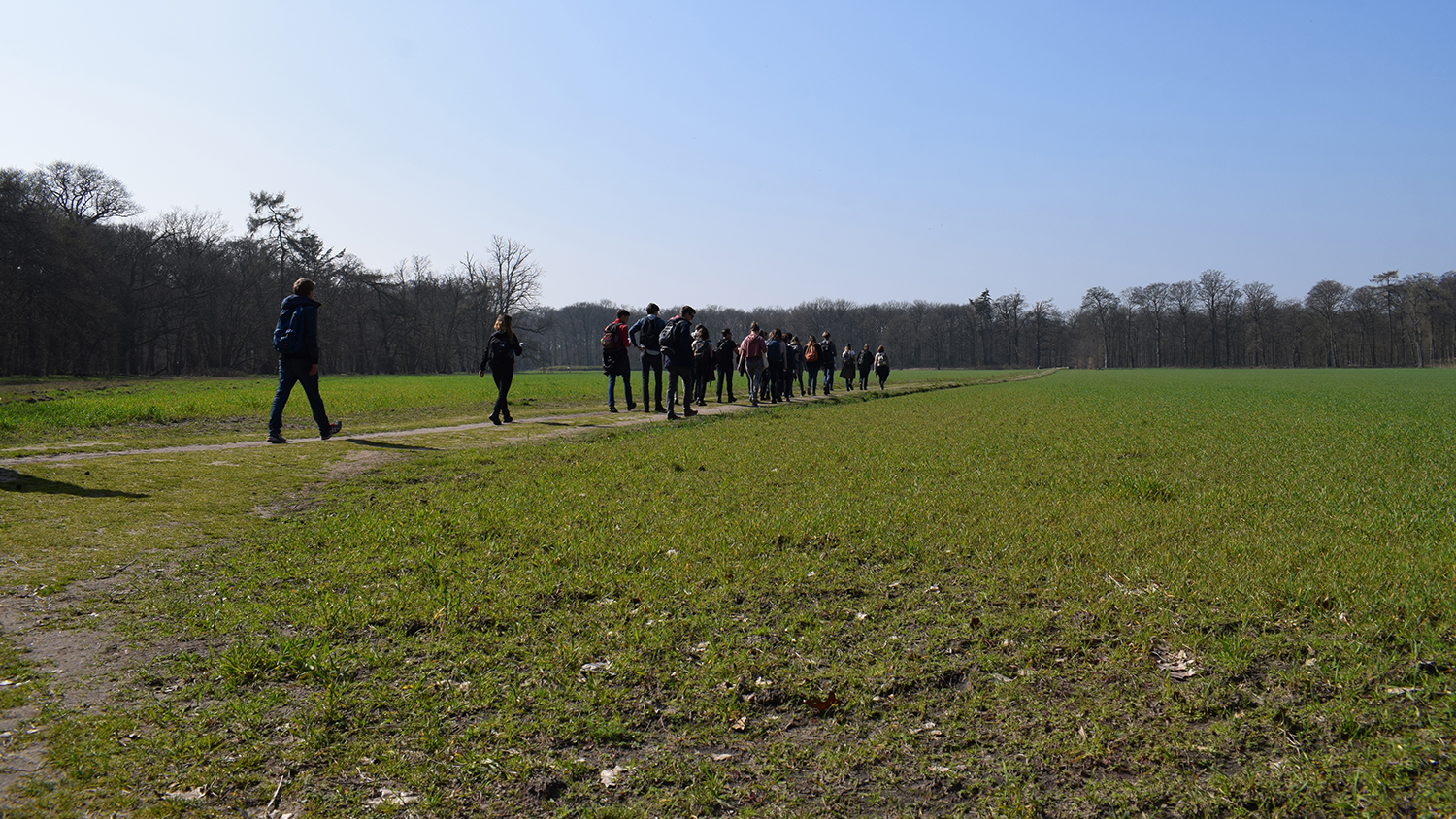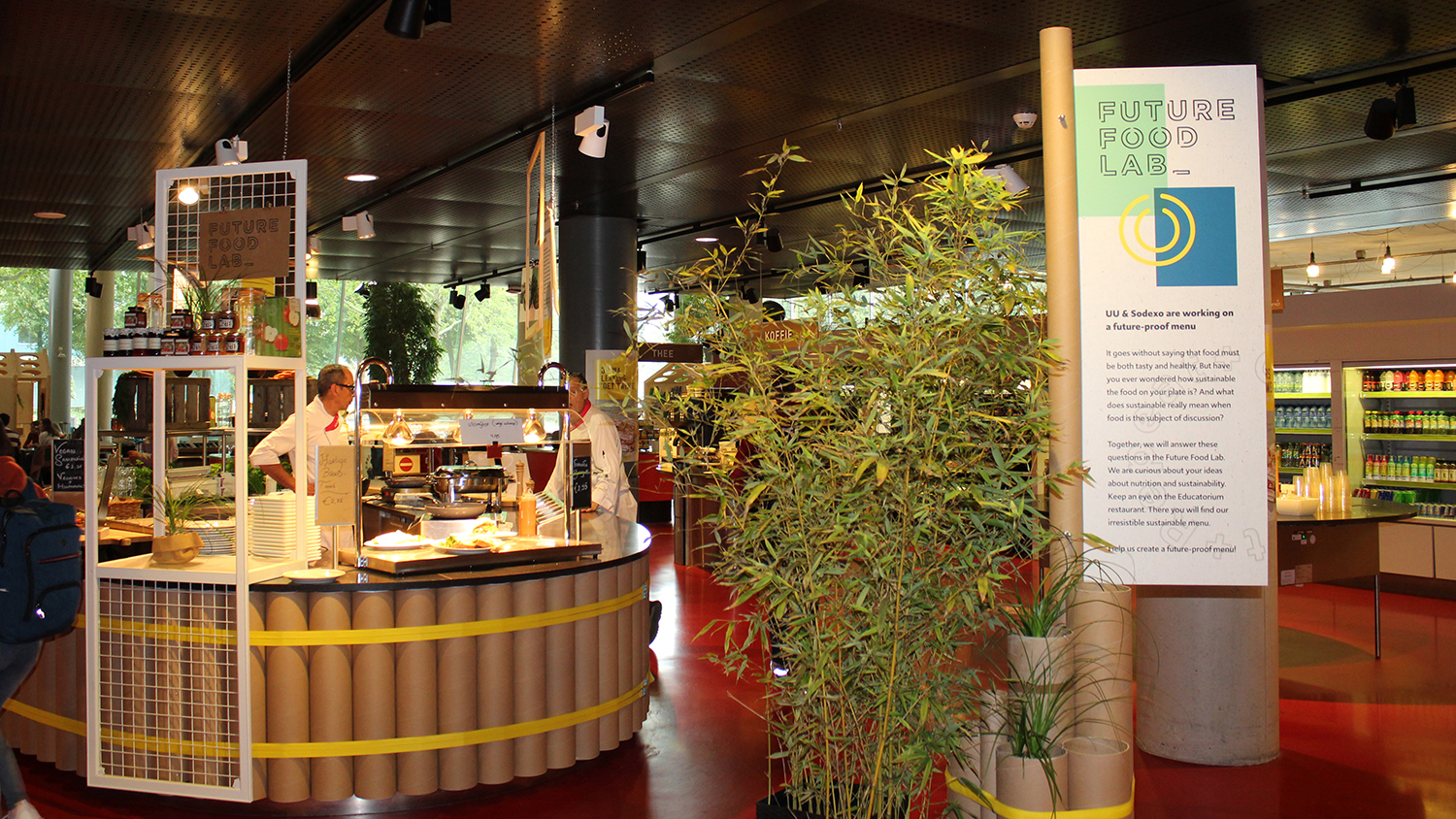UU wants to play a role in restoring biodiversity

The group’s catchy name is inspired by the massive construction projects to protect the southwest of the Netherlands from the sea, following disastrous floods in 1953. To prevent such a tragedy from happening again, the country built the largest flood protection system in the world. It is therefore being suggested that a similar collective effort is needed to protect biodiversity.
Curious about what the plan entails and how its objectives will be achieved, DUB spoke with Merel Soons, Professor of Plant Dispersal Ecology & Conservation, who is enthusiastic about the Delta Plan and the fact that UU wants to make a contribution.
"Despite all the regulations set forth recently, biodiversity is still declining very rapidly, especially in rural areas. Many rural birds, butterflies, insects and plants are disappearing at an incredible rate. That shows that measures such as giving subsidies to farmers for meadow bird management are having little effect. That's why the Delta Plan for Biodiversity Recovery was set up," Soons begins. "In May 2018, a group stood up and said: ‘It can't go on like this'. That was shortly after the publication of a study showing that the total number of insects in the rural area has been reduced by more than 75 percent. That turned out to be a tipping point.”
Uniting relevance and benevolence
Since earlier measures from Brussels and The Hague proved insufficient to turn the tide, the new Delta Plan must make sure it’s more effective than its predecessors. But how? "The group that wants to commit itself to the Delta Plan consists of a broad coalition of all relevant sectors that have an impact on rural areas," says Soons, sounding combative. "That includes representatives of farmers; the business community; the retail sector; the Ministry of Agriculture, Nature and Food Quality (LNV); and nature organisations. There has been a lot of pressure in the past from nature organisations, citizens and governments to change things. The difference is that there is now a bottom-up, grassroots initiative. All the institutions who are taking part -- there are now more than fifty of them -- really want to work together. There is much more support now. There’s a common dream, a shared goal.”
That dream is made clear in the plan’s first paragraph: "In 2030, the green space of the Netherlands will be home to a rich biodiversity of soil life, plants, insects and rural birds. The landscape will sparkle with diversity and people will enjoy living, working and recreating there. Landscapes will be recognisable by their layout and vegetation, and people will identify with them and be proud of them.”
The question is how to make this dream come true. Soons explains: "The Delta Plan is based on the principle that everything and everyone should work together in a given area. In Zuid-Limburg, for example, all parties that are relevant in that area will work together to achieve tailor-made solutions. The energy will come from the partners themselves. They will develop their own activities.”
Nature is going to change around the USP
To Soon, it is extremely positive that UU is joining the project. "The University can contribute an enormous amount of knowledge that is relevant to all areas. We have knowledge in the field of ecology, in the field of legislation and regulations, in the field of public administration and transition sciences… But, most importantly, we have a location. We are located at the Utrecht Science Park (USP), which is a crucial green link in the Dutch nature network. We are surrounded by nature and we can strengthen it. We have everything we need. We can play a central role in the plan.”
This also means that things are going to change in and around the Utrecht Science Park. "We are not only going to contribute in education and research. We are also going to contribute to business operations. We’re going to develop a Living Lab for the Delta Plan at the USP and its surroundings. That will be an area in which we will work together with all the parties involved, from landowners and site managers to local authorities. Researchers and lecturers from UU can also participate in the project by conducting research or teaching. Excursions can take place and students can do research and internship projects," she says.
 Students taking the course Wildlife Conservation.
Students taking the course Wildlife Conservation.
It is not yet clear what all of this will look like, however. "We are creating a perfect dream goal with all parties involved. In any case, it must become a small-scale cultural landscape. Think of grassland, hedges, reeds and rows of trees. It should be located between Kromme Rijn and the Oostbroek estate and will be characterised by unique cultural-historical values, including the Amelisweerd and Rhijnauwen estates and the Nieuwe Hollandse Waterlinie. We can jointly provide education there, conduct research and use our business operations to show what steps can be taken to restore biodiversity. So we bring education and research together with our social partners.”
Sustainability intertwined with business operations UU
The Future Food Utrecht hub, which falls under the strategic theme Pathways to Sustainability, also came into being in this context. "It connects the people who work on food at UU and gives them a spotlight," says Soons. "They work in a transdisciplinary way with social partners. So, when delving into our eating habits, we look at health, but also at the way the food is produced. An example of a theme we are working on is protein transition. At present, people consume far too much animal protein and too little vegetable protein. That is neither sustainable nor healthy. It is at this intersection of food and health that we are raising our profile, not to mention nature-inclusive agriculture. How can we let our food production go hand in hand with nature, instead of this harsh contradiction?”

This commitment to sustainability is becoming more and more intertwined with life at the University. "For example, lunches served at meetings are always vegetarian, and this has been the case since last year. We also have a Future Food Lab in the Educatorium’s canteen where we hold exhibitions and offer experimental dishes, dishes that have been created in a sustainable way - dishes of the future.”
Similarly, the catering at the University reflects the commitment. "The old caterer, Sodexo, worked with Local2Local to use as many local products as possible.” The new caterer, Eurest, told DUB that it is still unclear whether it is going to continue to collaborate with Local2Local. Eurest does, however, work with local suppliers for coffee, fruit and vegetables.
In any case, the professor is happy. "The nice thing about the project is that everyone who wants to contribute can do so. So anyone who reads this and is motivated can contact me or The Green Office. Then we can join forces", Soons concludes.